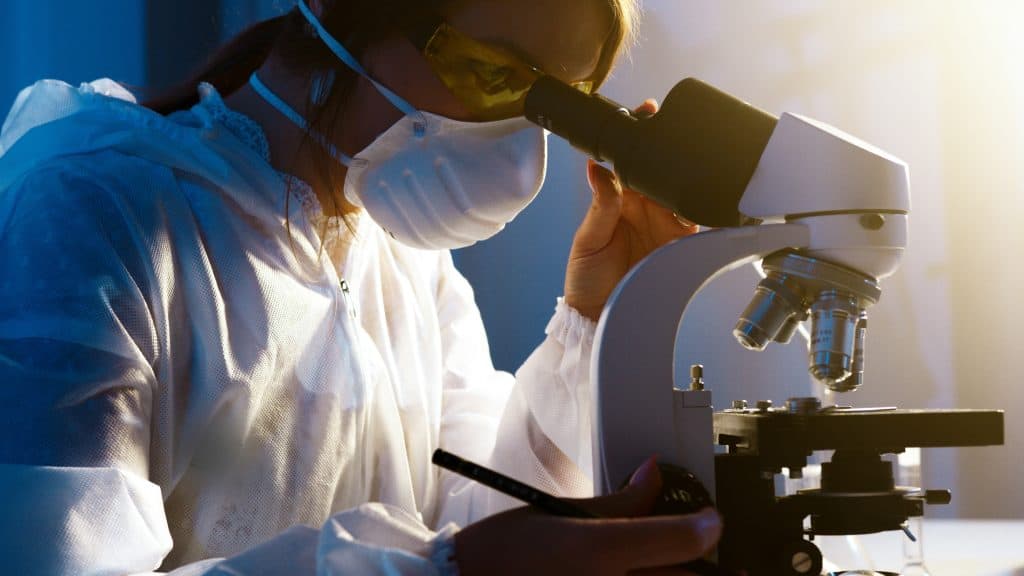If you’re planning to apply to one of the top-ranked medical schools, you may wonder what you should study to give you the best foundation and best luck at being accepted. The simple answer? Undergraduate science degrees from a regionally accredited college or university.
In a May, 2021 article American Medical Association (AMA) suggests that science-based degrees may provide premed students with a “leg up” on success at least with the Medical College Admission Test (MCATS) which is a standard admission consideration by medical schools.
The American Association of Medical Colleges (AAMC) tracked over 22,000 undergraduate students heading to medical school and found, of those students, the greatest number had a degree in Biological Sciences (12,845). Other studies in Physical Sciences, Social Sciences, Humanities, Specialized Health Services, and Math and Statistics followed. Among the 2011 medical school graduates, the AAMC found that 51% of medical students had a Biological Sciences background and about 13% had an undergraduate degree in the Physical Sciences, math, and statistics. The remaining 31%? Those were degrees in the Humanities and/or Social Sciences.
Three undergraduate majors do, however, stand out as having a good medical school admission rate. They are degrees in biology, bioengineering, or a health-related undergraduate major (i.e., public health, biophysics, nursing, health information, etc.).
While most medical schools don’t have specific undergraduate degree requirements and have moved to “preferred or recommended” studies. For instance, Harvard Medical School, currently ranked as the top medical school in the U.S., suggests applicants have studies in Chemistry/Biochemistry, Biology, Math, Physics, Behavioral Science, and Writing. Vanderbilt University School of Medicine recommends much the same academic track and adds Social Sciences and Communication to their list of helpful studies.
A sample of medical school recommended studies:
Biological/Molecular Biology Sciences
This area of study covers a range of natural sciences and processes. You’ll study subjects spanning animals to plants, organisms and microorganisms, anatomy, cell biology, biochemistry and/or biophysics. A BS in Biological Sciences will provide a strong foundation for medical school studies, whether your goal is patient care or medical research.
Chemistry/Biochemistry Sciences
With a chemistry degree, you’ll study organic or inorganic chemistry which will give you a foundation in understanding how all substances and their energies interact with each other. Biochemistry is the study of life with particular attention paid to molecular biological systems.
Physiology
It’s hard to imagine a better degree for medical school. You’ll be ahead in your studies because you’ll have a solid understanding of the human body and it’s systems. This degree examines human anatomy from skeletal, muscular, nervous, respiratory, and all systems in between.
Bioengineering/Biophysics
There’s probably no better degree if your medical school interests are in medical research and it will stand out to medical admissions. This discipline is a combination degree as the name suggests and applies biological and engineering principles to design medical devices and equipment. Bioengineers brought CT Scanners, MRIs, heart valves and heart pumps, prosthetic limbs and devices, endoscopes, and much more to the medical field.
Psychology
Not only is psychology a basis for a psychiatric MD but it’s a necessary study for physicians to understand the mind and behavior which frequently influences a person’s health. An undergraduate degree in psychology can be an indicator of your medical school potential success.
Nursing
A nursing degree probably will no doubt catch the eye of a medical school admission counselor. A RN demonstrates your knowledge not only of anatomy and physiology, but in chemistry, biology, psychology, and medical techniques.
Math and Statistics
The collection and analyzation of data is an important part of medical studies. Medicine is increasingly evidence-based and math and statistics has become a favorable degree for medical school admission, especially if clinical, basic science, or epidemiological research is a goal.
In brief, there’s no specific undergraduate degree that is required or preferred by medical schools. School admissions typically takes a holistic approach, looking at a candidates overall experiences and activities, GPA and MCATS, letters of recommendation, etc.
Related:
50 Best Ranked Medical Schools
25 Best Online MSN Nursing Degrees
